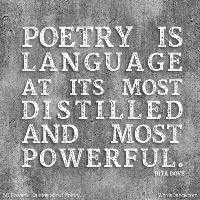Home »
Posts tagged Interpretation (Page 2)
In recent posts, I’ve been considering biblical variations on the type-scene, “Foreigner at the Well.”[1] Perhaps you are tired of reading about it… you have been reading about it haven’t you? I’m sorry; is my insecurity showing? Let’s try this again with a little more confidence. Thou shalt...
Continue reading
April 6, 2018 Andrew Sargent
101 Most Misunderstood Verses, Biblical Studies, Biblical Theology, HAGALAH, Inductive Study Methods, Old Testament Studies
No Comment
In recent blogs[1], I’ve been considering the alluring and powerfully theological type-scene “Foreigner at the Well.” It is common for people to develop in their entertainment of any form typical scenarios drawn from their own “way of life” which the community recognizes, anticipating their outcomes, and finding great...
Continue reading
April 4, 2018 Andrew Sargent
101 Most Misunderstood Verses, Biblical Language Issues, Biblical Studies, Biblical Theology, HAGALAH, Old Testament Studies
In my recent post, “Wells: The Singles’ Bars of the Ancient Near East,”—I just call ‘em like I see ‘em Folks! Don’t judge me—I discussed the beauty of the ancient type-scene, “Foreigner at the Well.” We discussed how every culture has popular literary scenarios drawn from elements of...
Continue reading
March 30, 2018 Andrew Sargent
101 Most Misunderstood Verses, Biblical Studies, Biblical Theology, HAGALAH, Old Testament Studies
No Comment
One of my great-uncles, a true good-ol’boy from west Texas, once said to my great-grandmother, “Mamma, it’s hard to find a good woman like you out there.” She replied, “There are plenty of good women like me out there. They just don’t hang out in the places you...
Continue reading
March 28, 2018 Andrew Sargent
101 Most Misunderstood Verses, Bible Backgrounds, Biblical Studies, Biblical Theology, Old Testament Studies
No Comment
One of the frustrations I face as a biblical theologian is the confusion that biblical laws regarding the poor cause Christians who cannot tell the difference between charity and entitlement programs sustained by governmental confiscation and redistribution of personal wealth. This confusion is created, I believe by two...
Continue reading
March 21, 2018 Andrew Sargent
Biblical Studies, Biblical Theology, Old Testament Studies, Society, Theology
No Comment
After discussing, in my recent blog post, “Hallelujah is a Sentence,” that the biblical “term” Hallelujah has grammar and that we should both be aware of that grammar and use the phrase accordingly in our worship songs, I received two types of criticism. Let’s call them sniveling and...
Continue reading
March 12, 2018 Andrew Sargent
101 Most Misunderstood Verses, Bible Backgrounds, Biblical Language Issues, Biblical Studies, NT's Use of the OT, Old Testament Studies
No Comment
How hard could it possibly be to find agreement on the meaning of a phrase as simple as biblical theology? In truth… harder than I’d like. Biblical theology is not, after all, merely theological ideas that are “biblical,” and the history of the phrase biblical theology is, unfortunately,...
Continue reading
December 8, 2017 Andrew Sargent
Biblical Theology, HAGALAH, Inductive Study Methods, Theology
No Comment
At the risk of sounding like a petulant child… well, a petulant child that complains about the frequent misuse of ancient Hebrew in weekly church services…. Which now that I think about it isn’t really childish at all…. Okay, so… at the risk of sounding like a scholarly...
Continue reading
August 11, 2017 Andrew Sargent
101 Most Misunderstood Verses, Biblical Language Issues, Biblical Studies, New Testament Studies, Old Testament Studies
Communication at its most basic is the use of symbols to affect the understanding of another. The symbols at a communicator’s disposal are both verbal and non-verbal. Verbal tools are spoken & heard symbols that represent ideas. Non-verbal tools are unspoken symbols that represent ideas. Phonology—uses words (individual...
Continue reading
July 14, 2017 Andrew Sargent
Biblical Language Issues, Biblical Studies, Communication, HAGALAH
No Comment
If you still aren’t convinced that learning biblical languages is worth the effort and time it will take to learn them (which is not as much as you imagine), I’ll list an additional 3 ways that learning biblical languages can enhance your ministry. Remember! when I use the...
Continue reading
July 12, 2017 Andrew Sargent
Biblical Language Issues, Biblical Studies
No Comment
Let’s be honest, when you understand what communication is at its roots, you’ll realize that you cannot avoid miscommunication… not altogether. It takes two to tango (That’s what my betters say, anyway… personally, I’m more of a Bugs Bunny Square Dance sort of fella’) and communication requires both...
Continue reading
July 5, 2017 Andrew Sargent
Communication
No Comment
I don’t know about you, but I am constantly bombarded by “helpful” suggestions about all the things I ought to be doing about my health, my work, my family, my finances, all those books I’ve just GOT to read. Frankly, it’s exhausting just hearing about it all. So...
Continue reading
July 3, 2017 Andrew Sargent
Biblical Language Issues, Biblical Studies
No Comment
A centipede was happy – quite! Until a toad in fun Said, “Pray, which leg moves after which?” This raised her doubts to such a pitch, She fell exhausted in the ditch Not knowing how to run. (Katherine Craster (1841-74) A spider met a centipede while hurrying down...
Continue reading
June 26, 2017 Andrew Sargent
Communication
No Comment
Don’t allow self-defensive thoughts like, “So, everything I’ve done for X years was a misguided waste?” “So, I’m not good enough?” “So! You think I can’t properly interpret the Scriptures in English?” prevent you from taking that next vital step in your dedication to radically improving your knowledge...
Continue reading
June 23, 2017 Andrew Sargent
Biblical Language Issues, Biblical Studies
No Comment
When I passed inspection for receiving my ministerial license, the individual responsible for my review spread out, like a row of piano keys, the many pages of answers I gave to the theological questions I was asked to address in the process. He ummm-ed a bit, scratched his...
Continue reading
June 21, 2017 Andrew Sargent
Biblical Theology, Theology
No Comment
Poetry, by definition, is usually regarded as distinct from another category of writing called Prose. To express it simply, Prose is normal writing. It reflects the speech patterns of typical daily conversation, even if a bit more planned and carefully refined. Poetry then is an alternate way of...
Continue reading
June 19, 2017 Andrew Sargent
Biblical Language Issues, Biblical Studies, Inductive Study Methods, Old Testament Studies
I realize that the second someone makes a statement like, “Every Christian leader should learn biblical languages,” feelings of condemnation erupt. “So, everything I’ve done for X years was a misguided waste?” “So, I’m not good enough?” “So, I can’t properly interpret the Scriptures in English?” If I...
Continue reading
June 16, 2017 Andrew Sargent
Biblical Language Issues, Biblical Studies
I love puzzles, always have. Growing up, I saw puzzles of all kinds as a natural exercise of my desire to be a detective someday, tracing out subtle clues to help me zero in on bad guys. Becoming a biblical scholar, then, has always seemed right on target...
Continue reading
January 18, 2017 Andrew Sargent
101 Most Misunderstood Verses, Bible Backgrounds, Biblical Studies, Biblical Theology, HAGALAH, New Testament Studies, NT's Use of the OT, Old Testament Studies
No Comment
I’ve been sharing my thoughts of late on the subject of reading Scripture in translation and the common discomfort that Evangelicals usually feel when scholars suggest that there is some vital element of Bible study that those who are dependent on translation are missing. I am unapologetic over...
Continue reading
November 2, 2016 Andrew Sargent
Biblical Language Issues
No Comment
Growing up it was not uncommon for the leaders in my church to claim that Scripture, being inspired, was easy to understand. Why would God speak to his people in ways hard to understand? Ignoring the fact the Peter directly contradicts this statement in regard to Paul’s writings...
Continue reading
October 31, 2016 Andrew Sargent
Biblical Language Issues
No Comment















